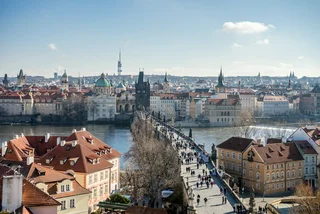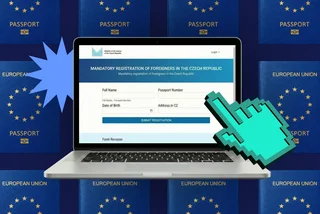A new report ranks Czechia among the ten safest European countries for expats, placing it eighth overall. Globally, it lands just outside the top 10, in 12th place.
That means daily life here—from riding late-night public transport to navigating the healthcare system—ranks highly in terms of personal security, health services, and infrastructure.
The index, compiled by British insurer William Russell, measured five key areas: personal security, public health, infrastructure, environmental safety, and digital security.
Curious to see which parts of Prague have the most crime (and which type)? Check this interactive map to see a detailed view of crime statistics in the capital.
“The safest countries in the world have some commonalities, such as high levels of wealth, social welfare, and education," write the ranking's authors. “In addition to this, they also often have effective criminal justice systems, and their governments are often able to maintain healthy relationships with their citizens and meet all of their needs.
The ranking also pulled data from global sources, including the 2024 Global Peace Index, which assesses crime, conflict, and military presence, and the World Risk Index, which tracks how countries handle natural disasters.
Broader safety rankings have also reflected Czechia’s strong performance. According to Numbeo’s 2024 Safety Index, the country ranked 12th safest in Europe—a slight drop from the previous year. Czechia remained the second-safest country in Central and Eastern Europe despite the decline.
Prague, in particular, consistently performs well in international safety rankings. In 2023, it was named the safest city in Europe—and the third-safest in the world—for travelers.
While Czechia scores highly on personal security and public health, the report notes that safety can vary depending on who you are.
“Some countries pose greater risks for women due to gender-based violence and inequality, while others may not offer strong protections for the LGBTQ+ community,” the authors write.
Czechia currently does not allow same-sex marriage and has yet to ratify the Istanbul Convention, a key treaty aimed at protecting women against violence.
The study found that Iceland, Ireland, and Austria were the safest countries in the world. Sudan, Ukraine, and North Korea were the most dangerous states.
- Do your research: Understand potential risks at your destination and how to minimize them.
- Be aware of different cultures: Learn cultural sensitivities to avoid awkward or unsafe situations.
- Be safe and secure: Lock windows and doors, and keep valuables out of sight before going out.
- Be medically prepared: Check for required vaccinations and disease outbreaks before traveling.
- Have a safety net: Prepare a backup plan, like international health insurance, in case of emergencies.
Source: William Russell












 Reading time: 2 minutes
Reading time: 2 minutes 



























